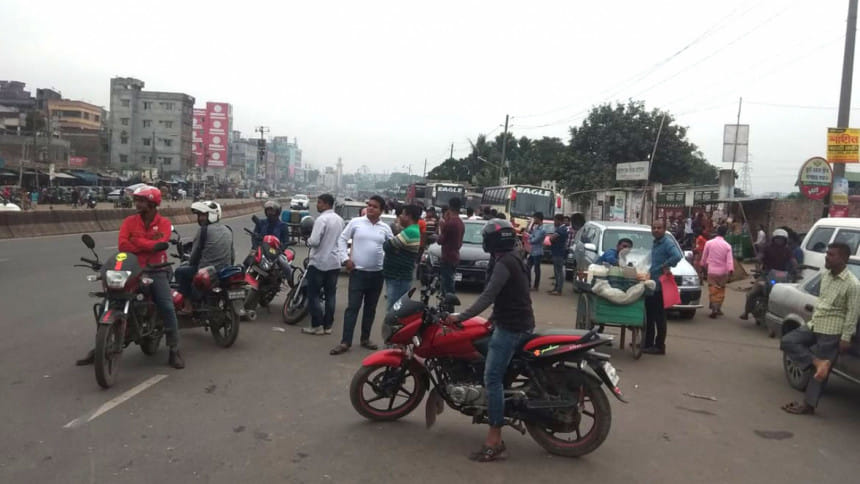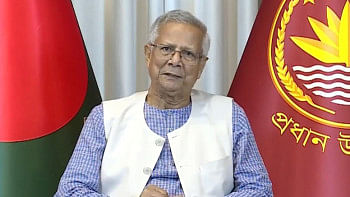Ride-sharing bikers cash strike in city

Ride-sharing motorcyclists cashed in on the suffering public in Dhaka city today, taking passengers on contract and charging higher than normal.
Motorcyclists were seen at Gabtoli taking passengers to areas even out of coverage of their respective mobile app services – in areas such as Savar and Ashulia.
Also, passengers were seen lining up for such vehicles, despite high fares, due to the scarcity of public transports for the ongoing transport strike across country.
“Although Savar and Ashulia is out of the app coverage, we are taking passengers as they need transport badly,” one such motorcyclist told The Daily Star on anonymity.
Besides, taking those long rides is proving to be profitable, he added.
The passengers were being charged Tk 250-300 to reach Savar while Tk 400 for Ashulia.
WHY THE STRIKE?
The transport workers are agitating against the recently-passed Road Transport Act, which has unbailable provisions and up to Tk 5 lakh in fine.
Their demands include making all offences under the Road Transport Act “bailable”, cancellation of the provision that allows a worker to be fined Tk 5 lakh for involvement in a road accident, changing the minimum educational qualification required to obtain driving licences from class-VIII to class-V, and ending harassment by police on roads.
WHAT DO WE KNOW ABOUT THE ROAD TRANSPORT ACT?
On September 19, the parliament passed the much-anticipated Road Transport Act-2018 amid criticisms over lenient punishments for deaths caused by reckless driving.
According to the law, if anybody causes an accident by reckless and negligent driving, and kills or injures someone seriously, such person would face a maximum sentence of five years in jail or a fine of Tk 5 lakh or both.
However, if it is found that a driver has deliberately killed anyone or not averted a killing in a road accident, the matter would fall under either section 302 (murder) or 304 (culpable homicide) of the Penal Code, according to the explanation of the proposed act by the law minister.
The maximum punishment under section 302 of the Penal Code is the death penalty while it is life imprisonment under section 304.
Asked about the public suffering caused due to the strike, the general secretary of the federation said that they are not responsible for the suffering, rather it is government who is responsible.

 For all latest news, follow The Daily Star's Google News channel.
For all latest news, follow The Daily Star's Google News channel. 





Comments